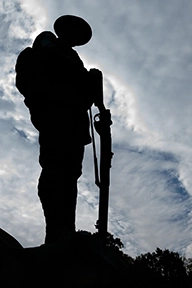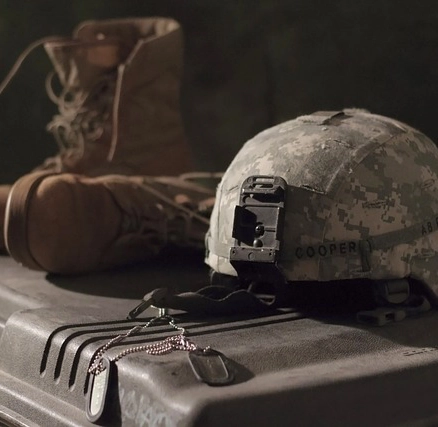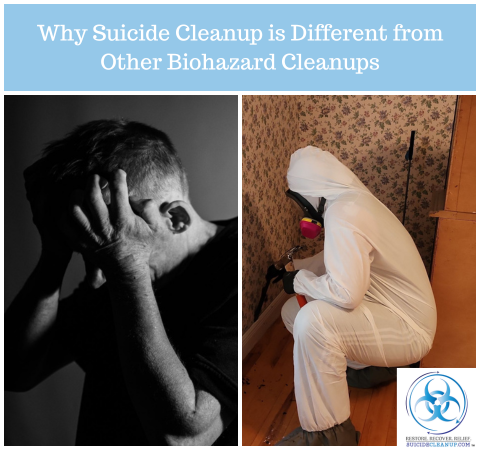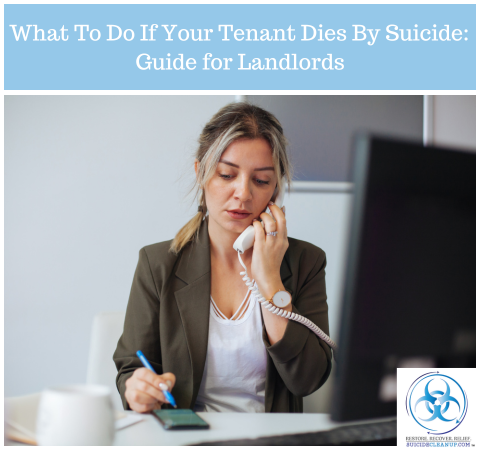
What Are Phantom Smells?
June 2, 2023
What to Do If Your Child Is Talking About Death
July 29, 2023In the United States, veterans are 1.5x more at risk of suicide than those that haven’t served and this is the second leading cause of death in soldiers under 40. Veteran suicide is an incredibly serious problem that needs to be addressed. There are a number of ways that we can work to stop veteran suicide and provide meaningful support to this important part of our society.
The first step in preventing veteran suicide is to make sure veterans have access to beneficial services and support. This means making sure that veterans are aware of the various mental health services available to them, such as counseling and other forms of therapy. It also means talking to veterans about their experiences and feelings and ensuring that someone is there to listen.
Another way to stop veteran suicide is to provide educational resources and programs. Providing veterans with information about the warning signs of suicide and giving them resources to help themselves can make a huge difference. Additionally, offering classes in areas such as financial literacy and employment counseling can give veterans the tools they need to lead successful and fulfilling lives.
Finally, it is important to raise awareness about the issue of veteran suicide and work to de-stigmatize mental health issues. This means normalizing conversations about mental health and creating a safe and supportive atmosphere for veterans to talk about their experiences. By raising awareness, we can begin to reduce the stigma surrounding suicide and help provide help to those who need it the most.
Possible Explanations
Veterans face many unique challenges when they return from the war. War is a violent, chaotic, potentially traumatizing environment. Beyond the phrase “being out for blood” soldiers may be exposed to extremely emotional and physically stressful experiences that test their fear of death, overwhelm, and uncertainty in a given situation.
World War I was one of the most traumatizing wars in modern history because of how introduced modern technology and science to create weapons that caused destruction the world had never seen before. That was when the issues of post-war clinical depression and PTSD in soldiers really became apparent. One WWI British soldier was being treated for his wounds at a British hospital and said this of the war:
“Well old chap, I am glad I am wounded to get out of that hell, and if you ever meet a chap that says he wants to go back, call him a liar”
While nuclear weapons or weapons of mass destruction have become more regulated, the reality is that there is no way to completely guarantee a safe and fair war. Every modern-day soldier experiences these situations differently, and thus, it’s important to treat each soldier with compassion for their experiences.
It’s a Culture Shock

Training in the military is specifically tailored to transition soldiers from civilians to military personnel.
Separate from compassion, it’s important to remember that a majority of soldiers experience a large culture shock when they return home. Not only have they been exposed to a number of traumatizing experiences or situations, but they have also experienced bootcamp training structured around a specific routine or regimen.
Depending on their rank, soldiers are expected to maintain a high level of commitment and standard of duty. Even according to todaysmilitary.com, basic training and/or bootcamp is “meant to transform civilians into soldiers”. Needless to say, the day to day routine of a soldier in training or on active duty is far different than that of a civilian’s.
Soldiers are to physically, emotionally, and mentally push themselves to handle or exceed the expectations of combat or duty.
While there is more thought and structure in place to transform a civilian into a soldier, there really aren’t any programs to help assimilate soldiers when they are discharged or no longer serving. Going back to normal life is a confusing experience, a cultural shock that leads many soldiers to feel lost, overwhelmed, and alienated.
Mental Health & Trauma
In greater detail, a soldier may face several mental health issues as a result of war trauma. These mental health issues can range from:
- Anxiety
- Clinical Depression
- Post Traumatic Stress Disorder (PTSD)
- Hallucinations
- Substance abuse
The most common issue among combat veterans is PTSD and hallucinations. Unfortunately, the fact that the public has not fully understood PTSD makes it even more challenging for a soldier to get by. Soldiers with PTSD experience flashbacks, triggers, nightmares, and sometimes compulsive violent behavior.
They may also self-medicate with illicit substances in an effort of numbing mental or physical pain. They may self-isolate by withdrawing from others and refusing to talk about their memories, flashbacks, and symptoms. 
Unrecognized depression, especially exacerbated by substance abuse, can greatly increase the risk of suicide for a veteran in this situation.
Raising Awareness and Making Resources Accessible
Needless to say, the battle doesn’t stop when the soldier leaves the battlefield. If anything, it just begins. A soldier begins the battle reconditioning behavioral patterns, unlearning training routines, and assimilating to life after war. Soldiers with PTSD face invisible wounds further complicated if they do not have physical ones. Soldiers are expected (and trained) to be mentally and physically strong, thus the stigma tends to prevent them from feeling safe or comfortable in reaching out and getting help.
Veteran Mental Health Resources
There needs to be more quality mental health resources available to veterans. The ones that are available are far and few, and there is a huge gap in the type of assistance veterans receive from it. Most veterans need more than basic psychological counseling; they need emergency access to compassionate treatment options well supported by active or former military personnel. They need staff that truly understand their background, experiences, and are able to offer solutions that adequately address the stigmas and day-to-day challenges they face.
Of the mental help programs available now, a few of the popular ones are:
- VA Mental Health Services: Provided through the government, the VA is available to all veterans needing outpatient or residential treatment services. The VA also offers crisis stabilization and other support services, including PTSD treatment, substance abuse programs, Vet Center program, rehab programs, and more.
- VA Suicide Prevention Hotline: Dial 988 and press 1 to connect with a 24-hour crisis hotline for veterans, service members, or even families looking for mental health support or resources.
- National Veterans Foundation: Also called Lifeline for Vets, the NVF is dedicated to providing peer support, resources, and suicide prevention services for veterans or their families.
- Veterans Crisis Line: Another 24 hour emergency hotline that is completely confidential and tailored for veterans experiencing flashbacks, nightmares, or facing other crisis (including financial).
- Psychological Health Center of Excellence: This organization provides help lines, online chatroom, and a crisis text line. Free mental health screenings and referrals to local resources are also available. The interesting difference between this organization and the other is that it
Identifying Suicidal Behavior
The first and most important aspect is to dispel the stigmas veterans face. Treat each veteran with respect and compassion and make an effort to actively listen. Even if you don’t understand, show patience and understanding, be sure to let them know they have your support.
Recognize Risk Factors in Veteran Suicide
Suicidal behavior tends to happen in silence, and this fact is even more prevalent among veterans, who are trained to be mentally strong in all circumstances. It may be hard to recognize when a vet is truly at risk. The best thing you can do in this situation is to familiarize yourself with the major risk factors. Awareness alone can help you recognize and take action on any potential risks. Some risk factors include:
- Inconsistent / issues following through with mental health treatment options
- Withdrawal or social isolation
- Substance abuse
- Firearm access
- Minority or in an area with high racism
- Financial issues
- Lack of support system – either family or friends
- Unemployment or difficulty holding a job
- Mental pain, or unexplained physical pain
Some may also be at risk if they’ve faced any type of sexual trauma in the military. Always be on the lookout for defensive behaviors, an aversion to sex, or a high motivation to discuss sex or express sex drive. This may suggest past sexual traumas.
What Are High Risk Suicidal Behaviors?
Recognizing the warning signs of suicide can be challenging when your vet does not open up to you. Again, this could be a sign of suicidal behavior in itself, or it can indicate their reluctance to address the issue. The best thing you can do is be patient, understanding, and nonjudgemental. In addition, you’ll want to observe any other potential risk factors, including:
- Fluctuating self esteem
- Talking about “ending it” or seemingly unafraid of death; speaking about death frequently
- Substance abuse
- Unhealthy sleeping patterns
- Reckless or risky lifestyle choices
- Loss of interest in activities or social withdrawal
- Anger, rage, or obsessive revenge seeking behaviors
For more information, please in greater detail how you can recognize the warning signs of suicide and depression.
Intervention
Intervening can be scary, especially when your vet has been prone to rage, obsessions, or revenge-seeking behavior. The best thing you can do is focus on establishing a connection with the individual so they are assured they have adequate resources and support. Once trust is established and they know your good intentions, you can gently guide them to:
- Mental health resources (mentioned above).
- Self-care (e.g., healthy eating, getting enough sleep, exercising).
- Strengthening their social connections by inviting or bringing them to functions where veterans might be.
- Developing an action plan for managing emotions (e.g. anger, sadness, frustration) or stress (e.g. flashbacks, nightmares, etc)
- Make veteran access resources most visible, either by placing emergency numbers on the wall or their phone’s speed dial.
- Remind them they are not alone and recovery is always possible.
It can be difficult to speak or connect with a loved one struggling. The best thing you can do is show support, be patient, nonjudgmental, and respectful. Remind them they have your support and they are not alone.
Following tragic events involving veterans, suicide recovery cleaning services provide families with the support they need during such difficult times.




